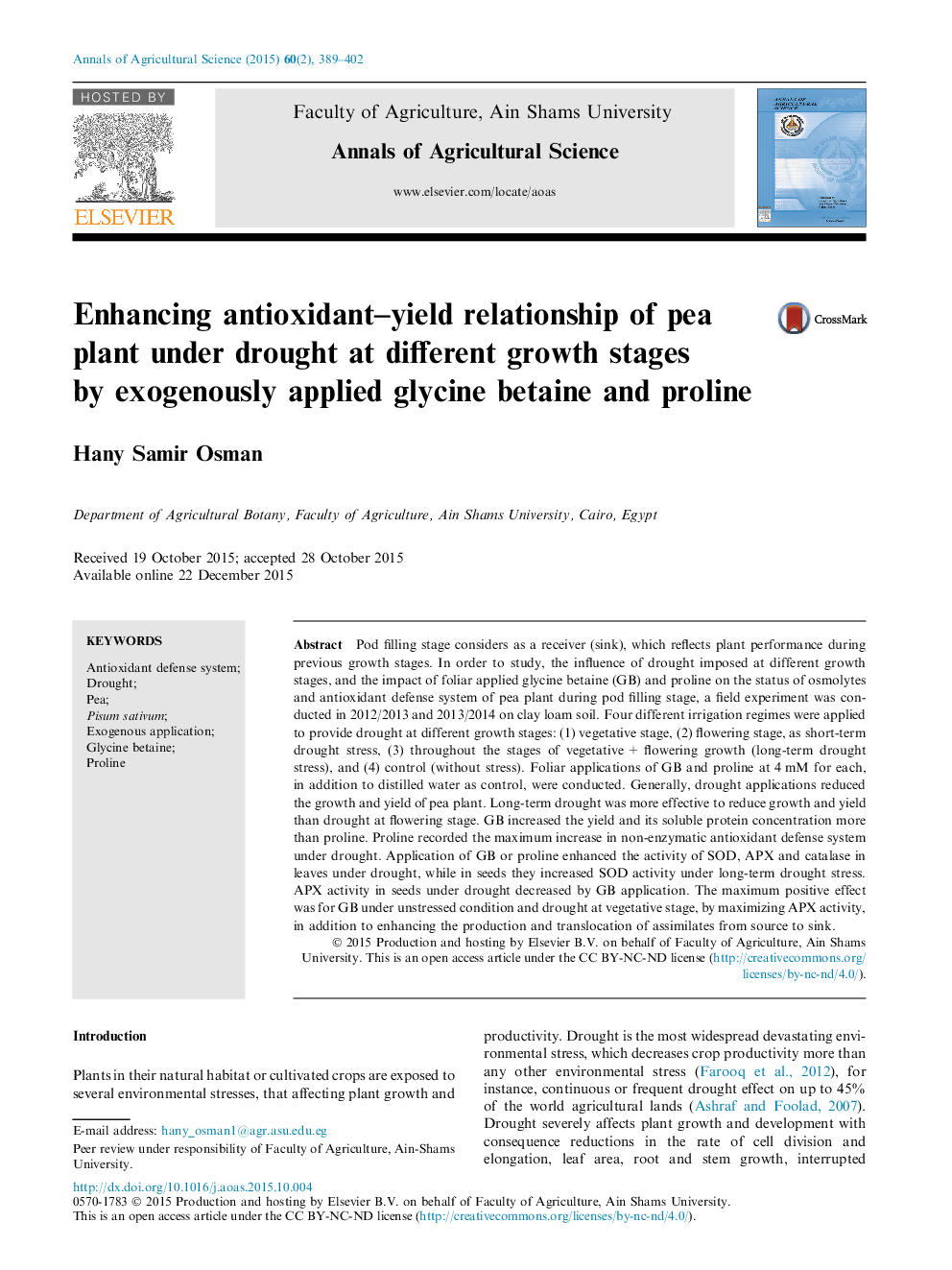| Article ID | Journal | Published Year | Pages | File Type |
|---|---|---|---|---|
| 4492850 | Annals of Agricultural Sciences | 2015 | 14 Pages |
Pod filling stage considers as a receiver (sink), which reflects plant performance during previous growth stages. In order to study, the influence of drought imposed at different growth stages, and the impact of foliar applied glycine betaine (GB) and proline on the status of osmolytes and antioxidant defense system of pea plant during pod filling stage, a field experiment was conducted in 2012/2013 and 2013/2014 on clay loam soil. Four different irrigation regimes were applied to provide drought at different growth stages: (1) vegetative stage, (2) flowering stage, as short-term drought stress, (3) throughout the stages of vegetative + flowering growth (long-term drought stress), and (4) control (without stress). Foliar applications of GB and proline at 4 mM for each, in addition to distilled water as control, were conducted. Generally, drought applications reduced the growth and yield of pea plant. Long-term drought was more effective to reduce growth and yield than drought at flowering stage. GB increased the yield and its soluble protein concentration more than proline. Proline recorded the maximum increase in non-enzymatic antioxidant defense system under drought. Application of GB or proline enhanced the activity of SOD, APX and catalase in leaves under drought, while in seeds they increased SOD activity under long-term drought stress. APX activity in seeds under drought decreased by GB application. The maximum positive effect was for GB under unstressed condition and drought at vegetative stage, by maximizing APX activity, in addition to enhancing the production and translocation of assimilates from source to sink.
